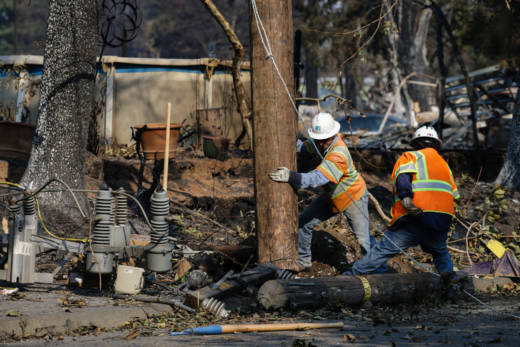State lawmakers may make it easier for utilities to reduce liability for wildfire damage as California braces for more severe blazes in the face of climate change.
The changes would apply only to future fires, not the ones that swept across California’s wine country last year — the most devastating in state history. But the debate comes as Pacific Gas & Electric Co. faces potentially billions of dollars in costs for those fires. The utility has called on the state to change a law it says holds it almost entirely responsible for wildfire damage, even if it follows safety rules.
Gov. Jerry Brown and legislative leaders announced a special committee Monday to discuss financial responsibility for fires, as well as fire prevention and requiring utilities to develop more expansive wildfire preparedness plans.
Current law requires utilities to pay for property damage caused by their equipment, even if there’s no finding they were negligent in maintaining and operating it, under a doctrine known as “inverse condemnation.” Monday’s announcement suggests Brown and lawmakers are looking at scaling back that principle.
A bill the committee will work from says “current legal standards should be refined” to allow courts to determine liability when utilities “have acted reasonably in installing, maintaining, and operating their transmission systems.”

